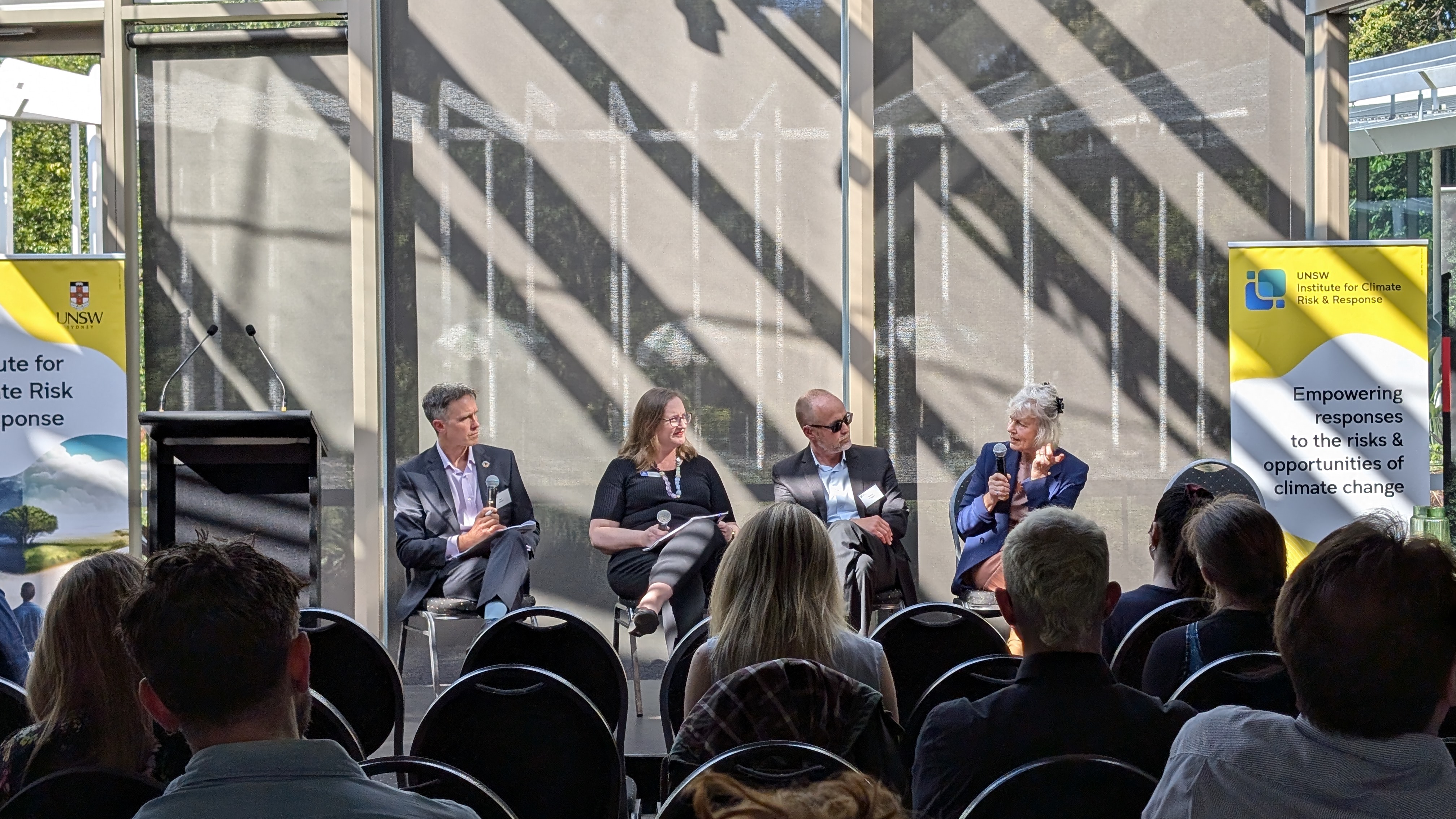
The UNSW Institute for Climate Risk & Response’s conference was attended by more than 150 leaders from business, government, academia and community organisations.
Australia’s evolving role in global climate action took centre stage at the UNSW Institute for Climate Risk & Response (ICRR) inaugural conference. The country’s bid to host COP31 in collaboration with Pacific island nations was a key point of discussion and was framed as a turning point in our approach to climate leadership.
Speaking on a panel at the conference, Dr Wesley Morgan, Research Associate at ICRR, underscored the importance of this moment.
“The stars have aligned for Australia to be a leader on climate action … our economic interests, national security interests and strategic interests are all now aligned with playing a much more ambitious role in the global fight to tackle climate change,” he said.
COP31 could be a game-changer for Australia’s climate leadership
Hosting COP31, potentially Australia’s largest diplomatic event ever, could pave the way for a major transition from fossil fuel dependency to a clean energy economy.
Dr Morgan emphasised the significance of the bid, noting that it would be “an opportunity to reset our trade relations in Asia and cement our place in the Pacific”.
This opportunity, he said, could catalyse a long-term shift toward sustainable energy practices and heightened climate diplomacy in the region.
Also speaking on the panel, Jillian Broadbent AC, Chair of the ICRR Advisory Board and Director at Macquarie Group Ltd, shared Dr Morgan’s optimism, noting that Australia’s adaptability could be a great asset. She said Australia is very adaptive, explaining that the nation’s abundant resources could sustain global energy demands if policies support a clear path forward in renewable energy.
“We’re adaptive enough and small enough, and instead of saying, ‘Whatever we do doesn’t matter,’ I think we’ve thankfully moved past that,” she said.
“Now, we aim to set targets and leverage our small economy, large footprint and vast potential in renewable energy to say, ‘Take our power and use it sustainably.’ So, I am quite positive about that – if we take the long view.”
The panel did not overlook the significant challenge standing in the way of Australia addressing emissions from its fossil fuel exports.
Dr Morgan highlighted the need for greater accountability, explaining that “the combustion of the coal and gas that we produce is more than double the emissions from the entire rest of the economy … Australia needs to take some responsibility …”
The panellists emphasised that COP31’s spotlight could help Australia solidify its climate leadership through ambitious policies and showcase effective adaptation strategies in disaster-prone regions.
Ms Broadbent noted, “Australia’s resilience and unique disaster-prone environment could allow us to take a leadership role in showcasing adaptation strategies and Indigenous knowledge.”
As Australia’s role in global climate action gains momentum, the panel concluded that, with strategic partnerships and dedicated policy reform, the country could transition from its history as a fossil fuel heavyweight to a future as a clean energy leader – potentially using COP31 as a powerful catalyst for this transformation.
The cost of climate inaction
The urgency of climate action was also reinforced by the Hon. Matt Kean, Chair of the Climate Change Authority, in his opening keynote at an Industry Forum during the conference.
In his address, Mr Kean highlighted the staggering financial impact of climate change, explaining that natural disasters already cost the Australian economy $38 billion annually. That figure is projected to soar to $73 billion by 2060, even under optimistic emissions scenarios.
“For those of you that say that the cost of acting on climate change is too high, let me tell you, as the [former] Treasurer of NSW, I had to count the cost of us not acting on climate change,” Mr Kean said, referencing the unprecedented droughts, bushfires and floods Australia has recently experienced.
Mr Kean also underscored the need for government support in transitioning toward renewable energy, which already accounts for one-third of Australia’s electricity generation. He emphasised that climate risk is indeed “an investment risk” and called for Australia to “become a clean energy superpower” to mitigate long-term economic losses.
Learn more about how Australian and Pacific universities are collaborating to deliver a successful COP31.
Join the UNSW Institute for Climate Risk & Response Community to stay updated on climate news and events.
Main image: A panel at the ICRR conference discussed the role of Australia in leading climate action. From left to right: Ben Newell, Jacqueline Peel, Wesley Morgan, and Jillian Broadbent AC. Source: UNSW Photographer.
- Log in to post comments
